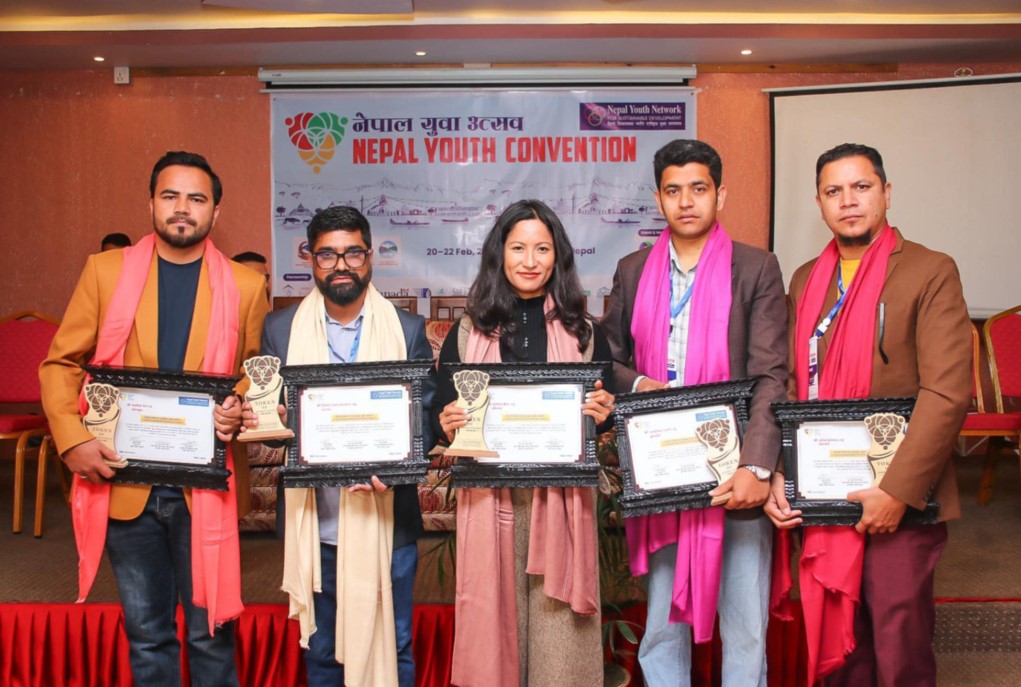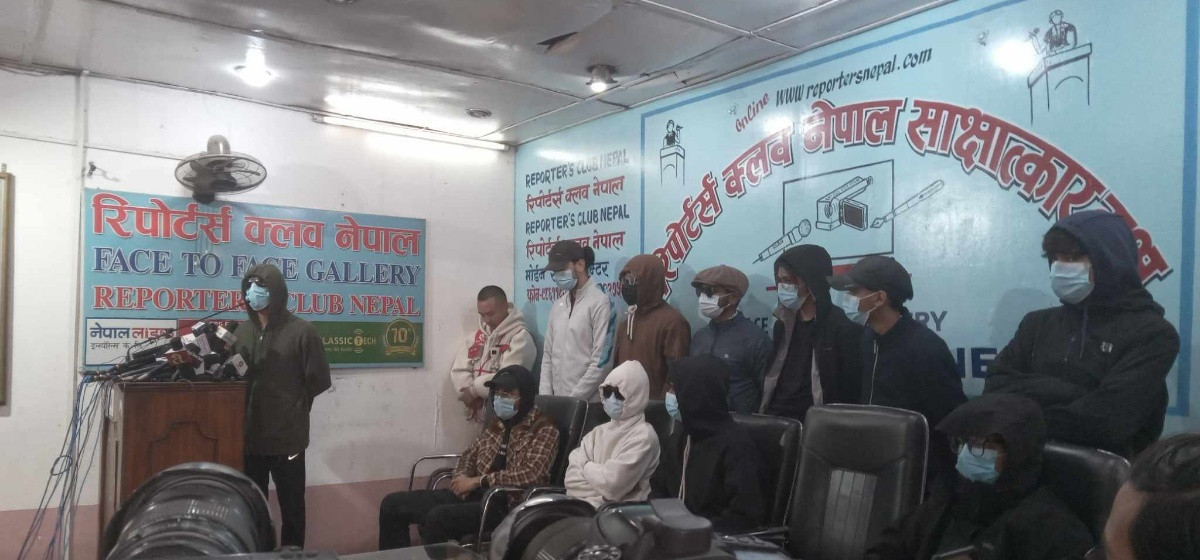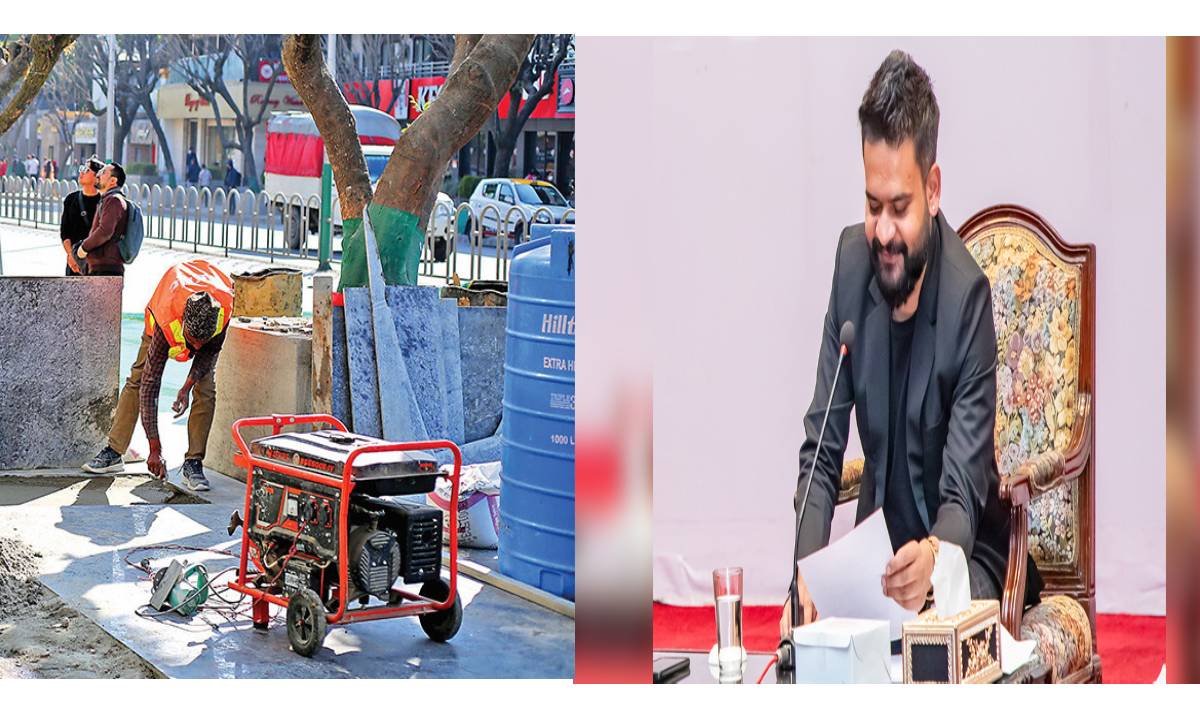Sithi Nakha is also the last day for performing annual offering to the ancestral or guardian deities amongst the Newar community.[break]
According to Tejeshwor Babu Gongah, cultural anthropologist, the word “sithi” was modified from the Sanskrit word “Shashthi” meaning sixth and “nakha” in Newar language, or Nepal Bhasha, means festival.
Thus the name Sithi Nakha was given because it is celebrated on the sixth day of the bright fortnight in the month of Jyestha in the Bikram Sambat calendar. It is also known as Kumar Shashthi.
“It’s a day to worship “Pikhalakhu.” “Pikha” means outside and “lakhu” means the rivers nearby,” says Gongah. Pikhalakhu is a small circle or a mandap drawn outside each household of the Newar community. The community also regards Pikhalakhu as the place of Kumar.
The cleaning up of wells, ponds and stone spouts on this particular day, marking it as a festival, has a great cultural importance in the Newar community.
Environmentalists, on the other hand, have realized that this festival links itself with social and environmental awareness issues. UN-Habitat has mentioned Sithi Nakha in its brochure as “to be supported nationally in an effort to both preserve water sources and promote rainwater harvesting.”
Gyani Maya Maharjan, a local of one of the oldest Newari settlements of Lukhusi in Patan, however, shares a different story.
She has vivid memories of celebrating Sithi Nakha by pulling the remaining water from wells, making it easier for the male members to climb down.
“But in course of time, this culture has disappeared. My children barely know about cleaning water sources,” says Maharjan.
Anil Chitrakar, social entrepreneur, who avidly works for environment, says, “It’s not going to be easy to revive Sithi Nakha as a social event, as our societies no longer share a common value.”
He also mentions that the idea of adaptability can play a crucial role in establishing a cultural norm in disintegrated societies.
There are some instances of Sithi Nakha celebrated as a social initiative for water resource conservation. In 2009, seven newly renovated wells were inaugurated on the day of Sithi Nakha at Machhegaun Village, five kilometers west from Kirtipur Municipality. However, there were no programs organized the following year on Sithi Nakha.
Bishnu Narayan Manandhar, president of Machhegaun Environment Improvement Committee, says that there is low hope for a program this year, too.
The above cases from the members of Newar communities prove that the basic essence of the festival is being gradually forgotten. People are carrying out the traditional chores but the community service has been edged out. The water resources which have now turned into drain or have dried up are the witnesses that people have put the sanitation part out of their minds.
When the Kathmandu Valley is suffering from a scarce supply of water, Sithi Nakha stipulates that communities save their water sources.
Gongah believes that there are two dimensions of culture. The first is the traditional approach, and the second is the dynamic approach. He further adds, “We should focus on the dynamism of the festival, which is to save the environmental resources.”
This year, Sithi Nakha will be celebrated two days after the World Environment Day.
Hence, it will be contextual to spread word about water resources and community actions while the major water resources around the city like Bagmati, Bishnumati and Tukucha are filled with filth.
Cultural significance of Sithi Nakha








































